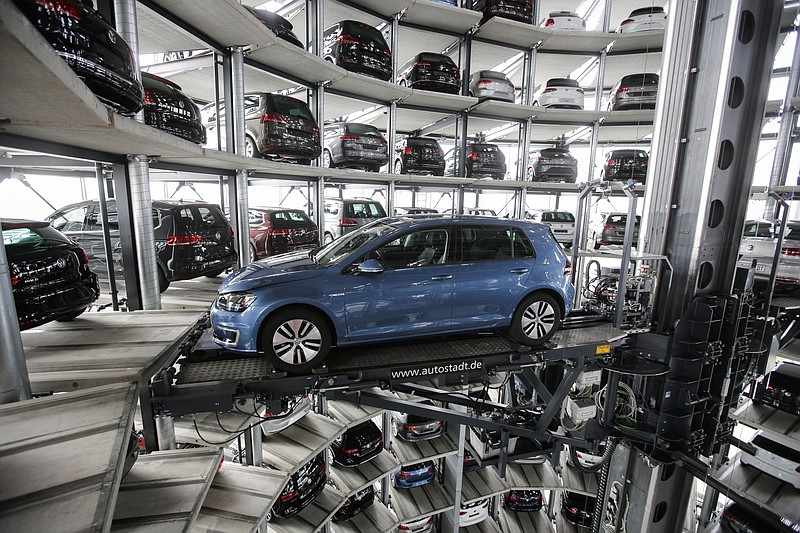Chattanoogans who own Volkswagens affected by the manufacturer's diesel cheating scandal likely have bitter feelings about the sordid mess, but Chattanooga as a city could be in position to make lemonade out of the whole affair.
As part of VW's settlement with the federal government, states and car owners that was announced last week, the German carmaker agreed to spend $2 billion more on zero-emissions vehicles.
Since Chattanooga is Volkswagen's only United States manufacturing plant, it seems reasonable to conclude most or all of that money might be spent here. After all, the manufacturer already has committed to building an engineering research center here.
Currently, the carmaker's only zero-emissions vehicle is the e-Golf, which is manufactured in Germany and sold only in 10 states and Washington, D.C. But VW had pledged in the past to increase its production of electric vehicles.
Indeed, if Volkswagen plays its cards right, the Scenic City could have the spotlight shown on it repeatedly as the site of the manufacturer's image turnaround, as the assembly plant for its new SUV (tentatively called the CrossBlue) and perhaps as the future manufacturing home of an electric car.
And, with last week's settlement, even the 2-liter diesel car owners may be able to shed their bitter feelings about VW.
Indeed, the owners may salve some of those feelings if they sell their cars back to the manufacturer because they stand to receive $12,500-$44,000 for them, depending on the model, age, mileage and options. That amount would be their trade-in value on Sept. 18, 2015 (the day the scandal broke) - without the depreciation from the polluting emissions system - as determined by the National Automobile Dealers Association.
Not only that, but all VW and Audi owners - 11,448 in Tennessee - will get an additional $5,100 to $10,000 in compensation. VW wasn't using the term, but the amount might be said to be for "pain and suffering."
All in all, the amount could practically buy a new car.
On the other hand, owners also can choose to get their cars repaired at no cost - though a fix has yet to be developed - and still get the additional compensation. They also can reject VW's offer and sue on their own.
We're betting somewhere in the U.S., shortly after the settlement's final approval is made this fall, there will be lots filled with the 475,000 cars with the 2-liter diesel engines.
The state of Tennessee also stands to gain. To lure
Volkswagen in 2008, the state, Chattanooga and Hamilton County offered $485.5 million in cash and tax incentives. When the manufacturer chose the local factory for expansion in 2014, the state approved a $165.8 million grant and $12 million in training costs, and local governments offered $52.5 million more for infrastructure.
The settlement will give the state $12.59 million as part of the $570 million VW pledged to the 43 combined states who sought relief for violations of state consumer laws. That's a drop in the bucket to the state and local government's estimated $715.8 million total investment, but it's not something the state ever expected to see before the scandal.
Of course, the state also is recouping its investment by, among other things, the location to the state of car parts manufacturers, by the sales taxes paid by plant employees and by property tax paid by employees who have bought homes.
Since VW early on said it would set aside $18.2 billion to cover the cost of the scandal, we're a little surprised 1) negotiations dragged on since February, and 2) that the carmaker hasn't come up with a fix for the diesel engine.
The tentative settlement will cost the manufacturer $15.3 billion, 84.1 percent of what it says it set aside, so the company actually may be breathing a slight sigh of relief. But one would think that a manufacturer that could create a system so sophisticated it could fool emissions tests could engineer either a fix for the system or a lesser polluting engine.
We're sure VW is glad the settlement is finally public, seems to have found critical acceptance and will allow the company to move forward. Chattanooga, Chattanooga workers and local governments probably also feel less tension. VW can weather this storm - albeit one of its own making - and come out the other side. Now we all can look forward to what new and innovative ideas can come from the carmaker - finely engineered and tightly built automobiles have been its hallmark, after all - and from its partnership with our city.
